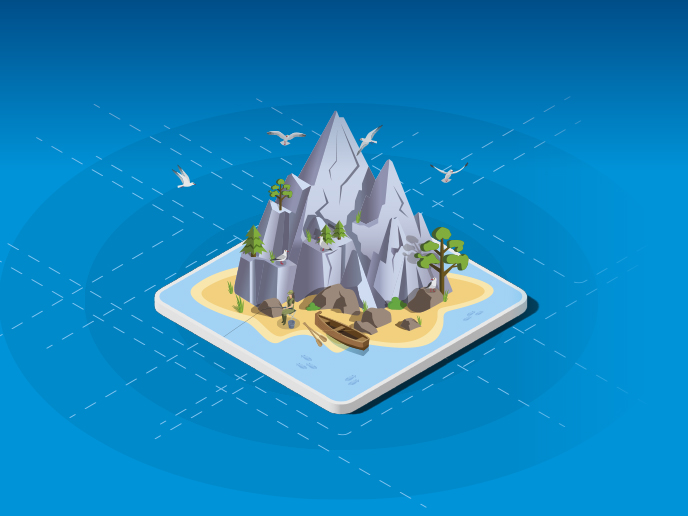III - Marine SABRES charts new waters in ecosystem-based management
We believe this will encourage a more widespread uptake of ecosystem-based management across Europe.
Emma Verling, Marine SABRES project coordinator
The health of the oceans is critical to global biodiversity and human livelihoods. To strike a balance between ecological preservation and our dependence on marine resources, the Marine SABRES consortium has been exploring innovative tools such as socio-ecological systems (SESs) and ecosystem-based management. While SESs have long been crucial analytical models used to describe human and ecological systems’ interactions – considering biological, social and economic factors holistically – they’re also notoriously complex, explains project coordinator Emma Verling, a research fellow at University College Cork’s Environmental Institute. “The complexity of SES models can deter their use. With this project, we aim to simplify them to aid managers in making informed decisions, especially when balancing various needs such as conservation and economic development. We believe this will encourage a more widespread uptake of ecosystem-based management across Europe.” Beyond efforts to simplify the models, the project will also demonstrate the value of these streamlined versions in three distinct demonstration areas, each chosen for its unique environmental and socio-economic contexts: the Tuscan Archipelago, the Greenland-Iceland-Faroes region, and Macaronesia on Africa’s north Atlantic coast. “In the Tuscan Archipelago, we aim to restore seagrass beds, crucial for biodiversity and carbon sequestration, by developing sustainable mooring and boating practices,” says Verling. “We will study the effects of climate change and changing oceanographic conditions on the ecosystem state across Iceland, Greenland and the Faroe Islands in close cooperation with the fishing industry, and in Macaronesia, we’ll test out specific coastal restoration and conservation interventions while monitoring their impact on touristic activities.” Each area focuses on different threats, allowing Marine SABRES to tailor its conservation strategies effectively and demonstrate their applicability across various marine contexts. Looking ahead, Marine SABRES seeks not only to demonstrate effective conservation strategies within these three systems, but also to provide a model that can be scaled up to more complex systems worldwide. The project’s outcomes are expected to inform and influence both European and international maritime policies.
Keywords
blue carbon, ocean-climate-biodiversity nexus, climate mitigation and adaptation, natural carbon sequestration, ecosystem services, marine biodiversity, ecosystem functioning, functional ecology, maritime spatial planning, ecosystem-based approach



